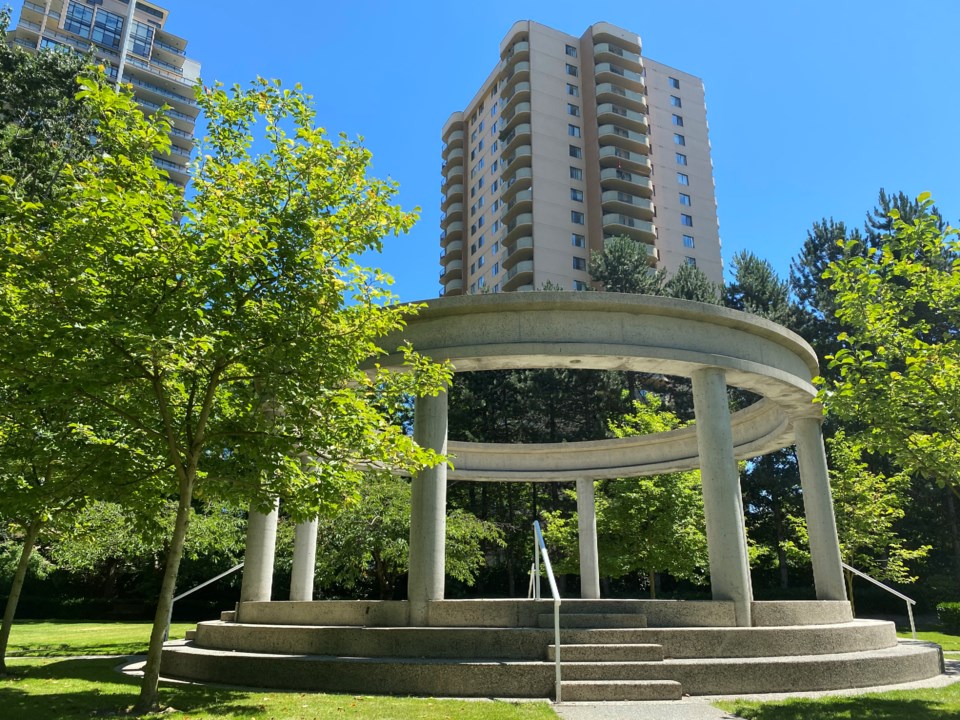Residents of a Burnaby co-op building that was recently sold in a complex deal are concerned their housing charges are on the rise.
‘A colossal human error’
In mid-September, members of the Post 83 Co-operative at 4221 Mayberry St. received letters stating their individually assessed housing charges would increase on Oct. 1.
In some cases, the rents were hiked by 80 per cent, from around $900 to more than $1,600.
But at a meeting with Post 83 members later in September, the CEO of the Co-operative Housing Federation of B.C. (CHF BC), Thom Armstrong, said the letters were sent in error.
“That was just a colossal human error,” Armstrong told the NOW. “There was a breakdown in communication.”
The rates weren’t raised on Oct. 1, but Armstrong confirmed they will go up eventually.
He said it will be a gradual increase, in cooperation with the co-op members.
Yet some Post 83 residents are skeptical about the transparency of the process and are nervous as rates are set to rise.
New mortgage means new rates
The sale of the co-op means it must pay a new mortgage — it’s just a matter of how.
The organization responsible for the co-op’s lease, the Community Land Trust (CLT), needs almost $3.8 million per year from the co-op to cover the mortgage.
(The Mayberry property is now owned by the City of Burnaby, which leases it to the CLT for a nominal fee.)
Members will vote on how to spend a previously set-aside investment fund of about $5 million, which could be used to subsidize some of the increased housing charges.
Because the mortgage has been delayed in going to market, options haven’t been laid out to the co-op members yet.
“A lot of people are confused, and they want to be safe and peaceful,” said Ash Yirgaw, a Post 83 member.
Members already see drawbacks in the options that have been floated.
One possible option is having new co-op members pay the monthly charges based on market-adjacent rates — up to 80 per cent higher than the charges paid by existing members.
The existing members have concerns this would divide the co-op between new members and old — the new members wouldn’t want to do the necessary shared co-op maintenance, like gardening, finance work or cleaning, if they pay substantially more than those with grandfathered rates.
“You lose the spirit of the community — that’s what happens,” Yirgaw said. “When people pay market price, they think, ‘Why should I volunteer for that?’”
Armstrong said the members could also vote to change the housing charges so that all apartments are charged at equivalent rates to prevent the charge imbalance, though he said it’s not anticipated.
Worries about new charges
The members noted the new charges for the 1980s-built Post 83 suites will be close to the ones charged for newly built co-op housing.
Armstrong said part of the deal included that the units must be renovated and upgraded as new members move in.
“Once you’ve got a unit, and you put in new flooring and new cabinets and new appliances, and upgrade fixtures and paint, it looks, and for all intents and purposes is, brand new. And that’s what justifies the higher housing charges.”
Higher rates won’t be the same as market value
He said the new rates, even though they were rescinded immediately, are a fraction of what they would have been had the property been sold to a real estate investment trust.
“Even as shocking as it was to the members, it pales in comparison to what the shock would have been had we not been able to conclude the purchase of those properties so successfully,” Armstrong said.
The co-op members said it’s not appropriate to compare co-op rates to market rentals.
“If we’re a co-op, we should be compared to other co-ops, not the market,” said Abdula Ali, a Post 83 member.
Co-op member Sabine Schreiber added that co-op members aren’t included in B.C.’s Residential Tenancy Act, which sets out protections from rent increases.
The co-op most recently voted to increase its housing charges by 14 per cent in February 2021, encouraged to do so to show they would be able to offset a mortgage. (The increases previously were usually about three per cent.)
Yirgaw said she wants to see a copy of the new lease agreement, as well as minutes from the meeting where it was signed.
Armstrong guaranteed that no member will pay more than 30 per cent of their income.



